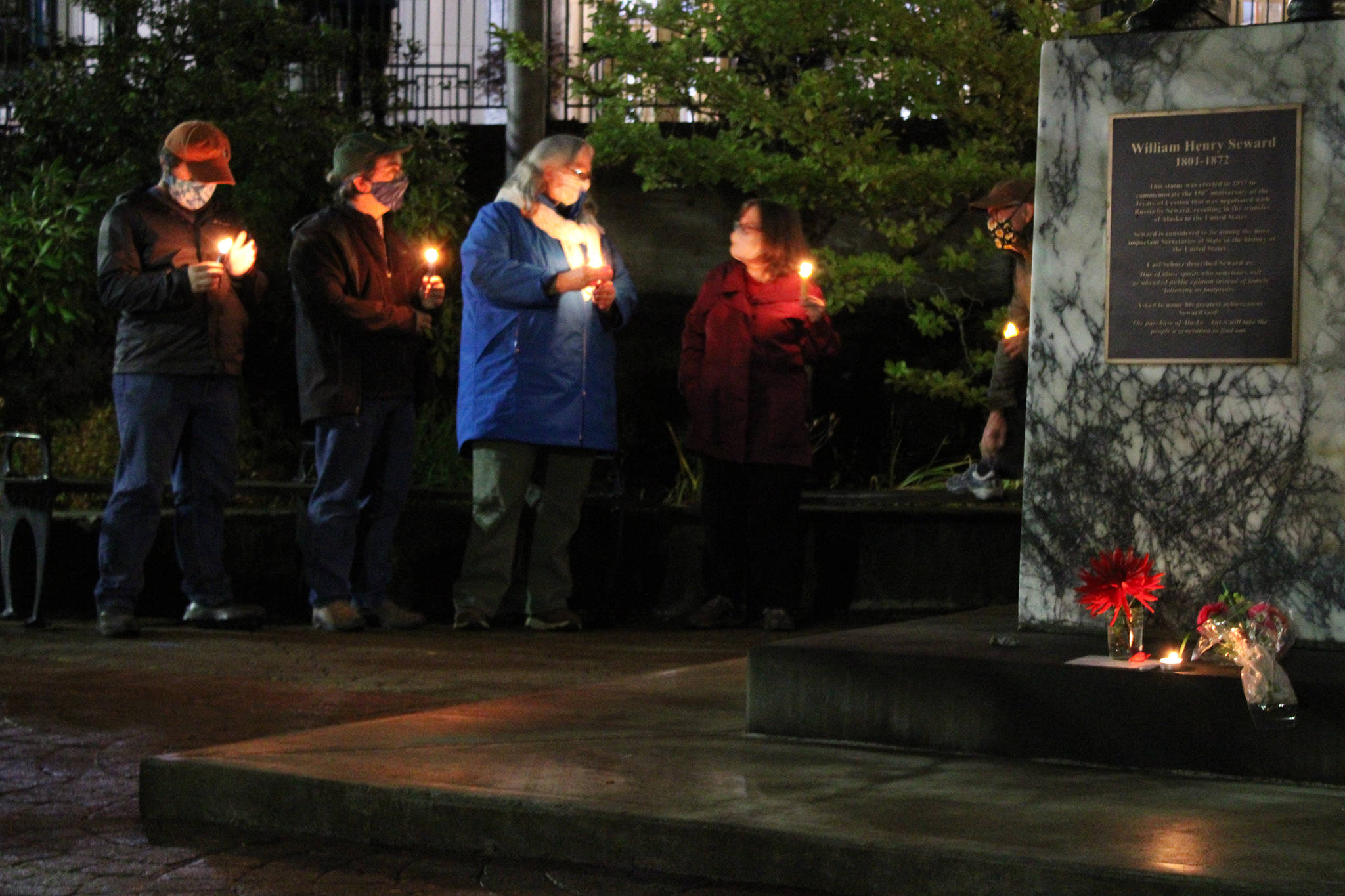Members of Alaska’s congressional delegation gave different responses as to whether they believe a Supreme Court justice should be appointed ahead of Election Day — but only one has so far shared a definite opinion.
Sen. Lisa Murkowski, a Republican, is back in the national spotlight as she and Susan Collins of Maine, also a Republican, may be two holdouts in the GOP as President Donald Trump moves to quickly fill the seat vacated by the death of Supreme Court Justice Ruth Bader Ginsburg.
In a statement, Murkowski said she didn’t believe in taking up judicial nominations this close to an election.
“I did not support taking up a nomination eight months before the 2016 election to fill the vacancy created by the passing of Justice (Antonin) Scalia. We are now even closer to the 2020 election — less than two months out — and I believe the same standard must apply,” she said.
In an interview Friday, Sen. Dan Sullivan, R-Alaska, said that he had only just learned of Ginsburg’s death moments before the interview and said now was the time to be respectful.
“I think right now the moment is to be respectful and remember her legacy which is an important legacy, trailblazing legacy. There’ll be plenty of opportunity to talk about next steps after this,” he said.
Sullivan supported withholding President Barack Obama’s nominee Merrick Garland in 2016 saying in a statement his decision was based on principle.
“The next Supreme Court justice could fundamentally change the direction of the Court for years to come. Alaskans deserve to have a voice in that direction through their vote, and we will ensure that they have one,” Sullivan said in March of 2016.
Amanda Coyne with Sullivan’s office said Monday in an email the senator was traveling and will be releasing a statement in the near future.
If unfilled by Election Day, the Supreme Court vacancy will likely be a factor in the presidential election and Senate races. Dr. Al Gross, who Sullivan is running against for reelection, has been critical of the senator’s silence on the matter, particularly given Sullivan’s statements from 2016.
Zach Brown, a spokesman for Rep. Don Young, R-Alaska, did not weigh in on the matter and said in an email to the Empire that House members do not vote on judicial nominations.
Republican senators, including Alaska’s, are being closely watched because if a vote to confirm a new Supreme Court appointee breaks along party lines, the nominee cannot lose many GOP votes and still be confirmed.
With a tie-breaking vote from Vice President Mike Pence, 50 votes from senators are needed to confirm a nominee. The Senate currently has 53 Republicans, 45 Democrats and two independents.
Murkowski and Collins were in a similar position in 2016, when Scalia died. At the time, Senate Majority Leader Mitch McConnell, R-Kentucky, refused to hold a confirmation vote for Obama’s nominee arguing appointments to the Supreme Court shouldn’t be made in an election year.
McConnell vowed in a statement Friday night, hours after Ginsburg’s death, to call a floor vote on Trump’s nominee, although he did not specify a date. McConnell, who sets the calendar in the Senate, has made judicial appointments a top priority.
Democrats said Republicans should follow the precedent they set in 2016 by not considering a Supreme Court choice in the run-up to an election, but McConnell’s comments make it clear he has no intention of doing so.
“Americans re-elected our majority in 2016 and expanded it in 2018 because we pledged to work with President Trump and support his agenda, particularly his outstanding appointments to the federal judiciary. Once again, we will keep our promise,” McConnell said.
Sen. Lindsey Graham, R-South Carolina, who chairs the Senate Judiciary Committee, said on Twitter Saturday he would support any effort by Trump to put forward a nominee.
Those statements contradict ones he made in 2018 and 2016, when he argued judicial confirmations should not be done in an election year.
“If an opening comes in the last year of President Trump’s term, and the primary process has started, we’ll wait to the next election,” Graham said in 2018 at an event hosted by The Atlantic magazine. Reminded that he was speaking on the record, Graham said “Yeah. Hold the tape.”
Two years earlier, amid the battle over Obama’s nominee Merrick Garland, the South Carolina senator was even more emphatic, urging listeners at a Judiciary Committee meeting to “use my words against me. If there’s a Republican president (elected) in 2016 and a vacancy occurs in the last year of the first term, you can say Lindsey Graham said, ‘Let’s let the next president, whoever it might be, make that nomination.’”
Despite those comments, Graham said Saturday that he supports moving forward on a new nomination because Democrats had changed the Senate rules to confirm more circuit court judges during Obama’s tenure, and because Senate Democratic leader Chuck Schumer “and his friends in the liberal media conspired to destroy the life of Brett Kavanaugh and hold that Supreme Court seat open.”
Murkowski, who opposed Kavanaugh’s confirmation, said in an interview hours before Ginsburg’s death that she “would not vote to confirm” her replacement before the next president is inaugurated.
• Contact reporter Peter Segall at psegall@juneauempire.com. Follow him at @SegallJnuEmpire.

